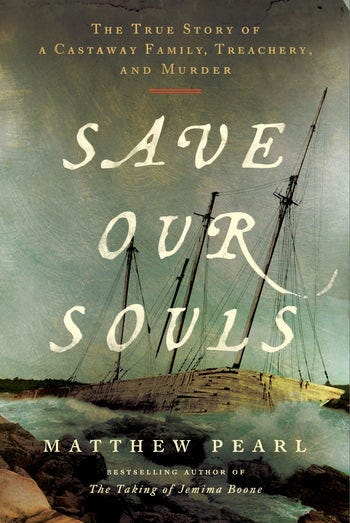Reviews: New books this February
Margie Sarsfield’s Beta Vulgaris, Sonya Walger’s Lion, and more.
Here’s what I’m thinking for my cadence on Substack. About four posts a month. Some combination of the following:
First, a roundup of capsule reviews for new titles that month, plus what I’m reading and reviewing at the moment—you’re reading this now. (Here’s last month’s edition).
Then, a more in-depth review of a single, soon-to-be-released book (this month, I’m going to cover Rebecca West’s Radio Treason: The Trials of Lord Haw-Haw, the British Voice of Nazi Germany, coming on February 11).
A feature? Last month I wrote about what leads me to write a negative book review. Recently, I resurrected an old piece about digging into the archive of my college radio station. There was also this roundup of weird, offbeat books.
I might do some quick takes on some favorites from my bookshelf, like this one on how Stoner is a great book about an awful person. We’ll see how it develops.
And finally, a look into my “personal backlist.” I’ve been reviewing books and music for 22 years, and I’m excited for the opportunity to highlight some of those older pieces and give those books and albums another look—here’s the January edition.
But for now, the present (or near future):
Beta Vulgaris by Margie Sarsfield
(W.W. Norton, February 11)
A smart, confident debut novel that’s part psychological horror, part millennial satire. Elise is a struggling young woman who follows her grungy boyfriend to Minnesota to harvest beets in the hopes of making enough money to cover the rent on their Brooklyn apartment. As she wrestles with her anxiety, her poverty, and her sexuality, Elise comes to find that her fellow workers are mysteriously disappearing. All the while, the beet field calls to her, perhaps literally, leading her to question her sanity.
Sarsfield does a great job capturing the anxious, self-flagellating voice of an insecure late millennial, and the well-drawn characters she fills the beet field with are familiar to anyone who’s traveled through alternative spaces in their youth. I will say that I often have trouble determining whether depictions of young millennials and Gen Z characters in fiction are meant to be satirically exaggerated or true to life, and this book is no exception. But it works, either way. Great cover, too.
Lion by Sonya Walger
(New York Review Books, February 4)
Billed as an autobiographical novel, Lion is the story of Walger’s relationship with her father, a restless, roguish adventurer who can’t help but keep moving, leaving a trail of spurned wives and abandoned children in his wake.
Walger’s prose is elegant and engaging, and the unique, free-associative structure of the book, which jumps back and forth through time, helps to illustrate the fractured nature of Walger’s memories of and feelings toward her father. We get to see him through her eyes: as a child, desperate for his love; an adolescent, struck by his charisma; and as a parent herself, struggling to understand his very nature.
It reminds me a bit of 2023’s Loved and Missed by Susie Boyt in how it elevates what could be a rather banal bit of business into something fresh and invigorating. I was really impressed. Walger shows a lot of poise in her debut effort—but I wonder what a follow-up might look like now that she’s exhausted this deeply personal story.
The Garden by Nick Newman
(G.P. Putnam’s Sons, February 18)
Grey Gardens meets The Fox meets Cormac McCarthy’s The Road? Two elderly sisters live on a secluded estate where a dilapidated, boarded-up manor house is surrounded by a lush and fruitful garden that they have tended to since childhood. It’s been decades since they’ve seen another living soul, having been shut up on the estate by their parents when the outside world began to collapse amid a climate catastrophe. Their conviction that they are the last two people on an otherwise scorched Earth is shattered, however, when a young boy breaches the wall of their compound, forcing the sisters to reevaluate their beliefs—and their relationship with one another.
Newman wisely offers readers a limited perspective, giving you just enough detail about the world and its fate to keep you interested, but not so much that it bogs things down. With what we’re given, we can fill in the blanks. Instead, he spends his time building out the relationship between sisters Evelyn and Lily, a volatile mixture of co-dependence and contentiousness that has kept them sheltered for much of their lives. What starts out as a bit of a slow-moving, meditative mystery slowly evolves into a fast-paced thriller, and though the ending wasn’t exactly to my taste, I can’t argue with it—I definitely appreciated the journey it took to get there.
Malaparte: A Biography by Maurizio Serra
(Translated by Stephen Twilley; NYRB, February 25)
At 736 pages, I’m not going to be able to give this a proper review here, but I did want to call out Maurizio Serra’s gorgeous writing (as translated by Stephen Twilley). It flows like water, carrying you through the dense, complex history with remarkable ease. And I want to highlight one bit that stuck out to me, especially as I worked through Rebecca West’s Radio Treason (and, frankly, contemporary existence):
From beginning to end, one finds in him a fascistic strain that he never belied under any regime, in particular a taste for force, the only real ideology of a man who disdained ideologies.
Recently reviewed elsewhere
Save Our Souls: The True Story of a Castaway Family, Treachery, and Murder
By Matthew Pearl (HarperCollins, January 14)
When I spoke to Pearl about the book, he likened the situation on Midway to a philosophical thought experiment, with the survivors separating into two camps — one group determined to stick together through adversity, the other prepared to do whatever it takes to ensure its own survival. "It's almost like a parable,” Pearl told me. “What is our responsibility to each other and how much of life is just thinking about yourself?"
At Dark, I Become Loathsome
By Eric LaRocca (Blackstone, January 28)
Though LaRocca is familiar with the vocabulary of transgression, they seem not to grasp its grammar, failing to employ their vivid grotesqueries into something meaningful or coherent. What’s left is a story about grief and loss that seems to misunderstand the very nature of those things, packed with grim imagery that I’d hesitate to call gratuitous, only because that might imply there’s something remarkable about it.
In paperback this month
Fruit of the Dead by Rachel Lyon
(Scribner, February 4)
Lyon relates this often troubling story in gorgeous prose that’s so vivid and luminous it contrasts starkly with the darkness of the subject matter. Every sentence is a feast, tempting you to push on further even as the discomfiting action of the plot and the often frustrating, deluded, self-defeating characters conspire to push you away.
The Book of Love by Kelly Link
(Random House, February 4)
“The Book of Love” reminds one a bit of a Cthulhu plushie — eldritch, Lovecraftian horror presented in a kitschy, tongue-in-cheek style. The friction this dissonance creates can sometimes generate sparks. Over 600 pages, though, there are plenty of times where it can rub you the wrong way, or otherwise dull what should be a profound moment.
Stray thoughts
Shock, shock, horror, horror, shock shock horror
In writing about the LaRocca book, I reread Michael Silverblatt’s 1993 L.A. Times article “SHOCK APPEAL,” which is said to have given name to the genre of “transgressive” fiction.
Ostensibly a review of a new collection of de Sade’s works, he goes further in exploring more contemporary examples, namely the books of Anne Rice and Bret Easton Ellis. “Both writers cover the same turf, the works of both are filled with violence against women, blood, and ‘depravity.’ Why is one adored and the other vilified?” he asks, then answers his own question: “The false transgressor [Rice] wants to give us an experience of virtual reality—but the author underlines the fantasy element of the experience. The real transgressor [Ellis] will not feed our yearning for fantasy and distance.”
This was always my impression of Ellis, as a real transgressor. American Psycho is genuinely one of the most uncomfortable books I’ve ever read. The depiction of the violence in it is visceral and upsetting—that’s what makes it effective. It’s not titillating at all. It’s too real, too faithfully rendered to be anything other than what it is, what it really would be—horrifying. I’ve never agreed with the apparent consensus that Mary Harron’s film version of American Psycho improved on the book. Because the violence in that film is so stylized, made so ridiculous, that it robs the story of that horror. It makes it a joke, sanitizes it, makes it safe for us to consume and enjoy.
“American audiences are inured to violence,” writes Rosenblatt, “when the violence is entertaining.” And that’s what I think people mean when they put Harron’s film over Ellis’s novel—the movie made the violence entertaining, consumable. It freed the viewer from thinking too hard about what they were watching, from having to consider the grisly truth about violence and our perverse enjoyment of it in our media.
Upcoming reviews
Tomorrow at WBUR.org: From Ted to Tom: The Illustrated Envelopes of Edward Gorey by Edward Gorey, edited and with an introduction by Tom Fitzharris (NYRB, February 4)
Later this month, for The Boston Globe: How To Be Avant-Garde: Modern Artists and the Quest to End Art by Morgan Falconer (W.W. Norton, February 18)
In March at WBUR.org: An interview with Joyce E. Chaplin about her new book, The Franklin Stove: An Unintended American Revolution (FSG, March 11)
In April for The Boston Globe: Terrestrial History by Joe Mungo Reed (W.W. Norton, April 8)
What I’m reading for March
Sun City by Tove Jansson (NYRB, February 18)
The Pilgrimage by John Broderick (McNally Editions, March 4)
The Frog in the Throat by Markus Werner (NYRB, March 4)
Holy Men of the Electromagnetic Age by Raphael Cormack (W.W. Norton, March 11)
Command Performance by Jean Echenoz (NYRB, March 11)
Perfection by Vincenzo Latronico (NYRB, March 18)
Remember This by Anthony Giardina (FSG, March 25)
The Instability of Truth: Brainwashing, Mind Control, and Hyper-Persuasion by Rebecca Lemov (W.W. Norton, March 25)
Thrilled to Death by Lynne Tillman (Soft Skull, March 25)











